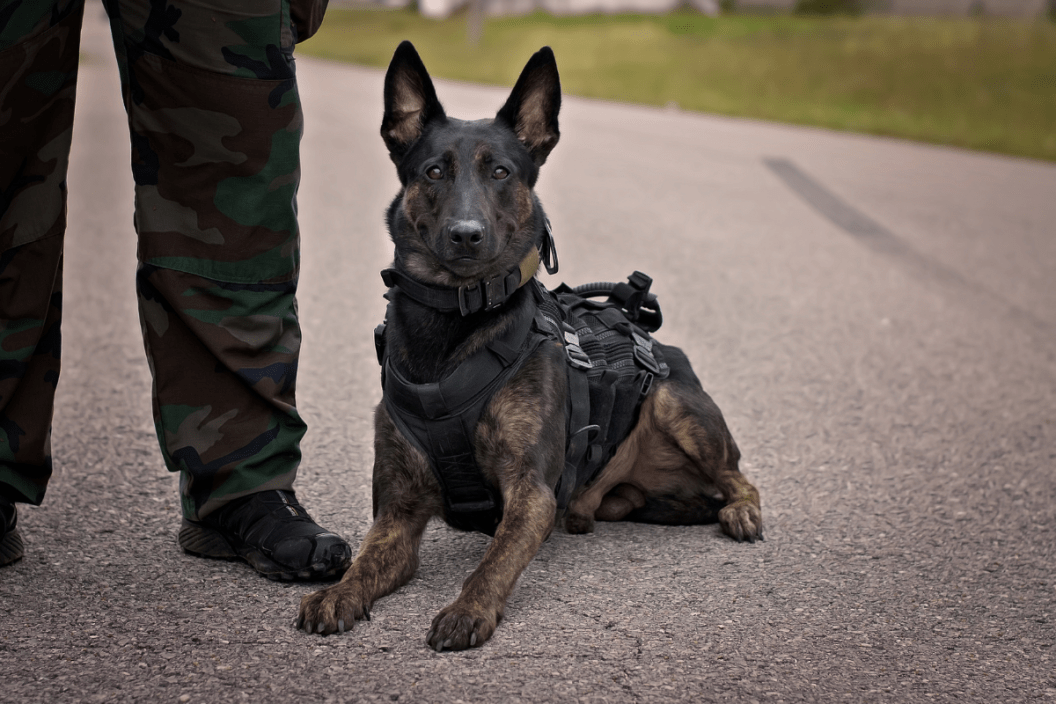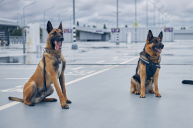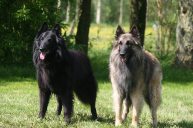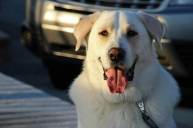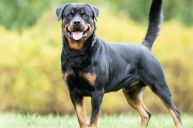Meet the Dutch Shepherd dog breed, a great family and working dog!
The Dutch Shepherd dog breed is active, athletic, attentive, and clever. This Dutch Shepherd breed was created as an all-purpose farm dog to herd sheep in rural regions and now excels at police work. The breed shares many features with its wild forefathers. Its initial use was to maintain flocks of sheep in a certain place. Though modern farming has less need for canine helpers, the Dutchie can make an excellent farm dog, much like the Belgian Malinois or sheepdog.
History
https://www.instagram.com/p/CQ3_GQVh1Q9/
The Dutch Shepherd is a rare breed of dog that originated in the Netherlands. It's a "Jack-of-all-trades" dog, well-suited to the harsh and scant conditions of the period. In addition to their function as shepherd dogs, they kept chickens out of the kitchen garden, herded the cows for milking, and pushed carts loaded with milk or vegetables to market.
The Dutch Shepherd's first breed standard was issued on June 12, 1898. The dog's original coat color was allowed, but by 1914, it was agreed that the dog should only be the brindle haired variety to distinguish it from two comparable breeds at the time: the German Shepherd and Belgian Shepherd. Around 1900, industrialization and reclamation of land for various uses had mostly supplanted sheep herds in the Netherlands, as well as the shepherd dogs who maintained them. Many Dutch Shepherds had very different lives after the world wars.
Personality
A fenced-in yard is perfect for Dutch shepherds, who have high energy levels and require a lot of mental stimulation. If dogs know what property is "theirs," they can be trusted not to run off to pursue squirrels or people. As with any dog, monitoring their socialization and activity level is key to a long life expectancy in your pet. If you've ever desired to compete in dog sports, the Dutch shepherd is the breed for you. However, bear in mind that they'll become aloof to instructions if they don't have anything to keep them busy and engaged every day.
The Dutch shepherd is a very clever dog that can quickly learn new tasks. Because of their intellect, teaching your Dutch shepherd in short bursts with minimum repetition is preferable. If these inherently independent dogs are not properly educated to accept instructions and are not motivated regularly, they are likely to strike off on their own and acquire difficult-to-break independent streaks.
Because the Dutch shepherd's instinct is still that of a herding dog, they get along well with other canines and animals. They may also be eager and faithful friends for elders. However, owners must be aware of their physical demands. They are hyperaware, learn patrol routines, and have the physical bulk and strength to be intimidating presences behind fences.
Dutch Shepherds are widely sought after by police agencies worldwide due to their intelligence and ease of training. They make great guard dogs because they have a strong territorial drive and a strong desire to defend their human partners. The breed was mostly imported from the farm as a companion for children, but it eventually found a second life as a police and military dog.
If you're searching for a dog to train, you've come to the right place. Keep your obedience training sessions interesting and enjoyable, and these dogs will return for more. They may not snuggle with cats, but because they have a low prey drive, they are unlikely to find them entertaining to chase, especially if they are taught and socialized at a young age. They make excellent watchdogs, police dogs, search and rescue dogs, and even family pets.
Appearance
RELATED: 14 Best Emotional Support Dog Breeds
Dutch shepherds are smaller than German shepherds, with both male and female canines standing approximately 2 feet tall and weighing 45-75 pounds. The coat is also notable for having three distinct hair types: short, long, and rough. While the various coats provide the same job in keeping the Dutch shepherd warm and dry, they all require distinct care routines.
Dutch shepherds have a little stockier look, with a more boxy head. There are two different coat types in purebred Dutch shepherds. The dog's short-hair coat is close fitting and is coupled with a fuzzy undercoat. The long-haired coat has straight, dense hair that might be rough to the touch. Except for the head, the rough-hair coat is a thick, harsh, disheveled coat.
The coat is the best method to determine the difference between Dutch and German shepherds: The Dutch shepherd is the only breed with a brindle coat. The brindle design is available in a range of hues. In fact, the coat is described as "appearing in any hue" in its original 1898 breed standard standards. Coat color in the modern American Kennel Club (AKC) has subsequently been adjusted to the darker end of the spectrum, with the most frequent hues being black, grey, silver, and rust, but a rare white variation is also conceivable.
Health & Grooming
Short-haired Dutch shepherds require a basic brushing every week and a half or so. Dogs with long hair should be brushed once a week, while those with shorter hair should be combed frequently. Both kinds will require more brushings in the spring and fall when their undercoat sheds, as well as baths on occasion. Regular brushing will not be enough since their coats are so thick and rough.
The Dutch shepherd is typically a healthy breed despite being a lesser recognized breed due to Dutch breeding restrictions. Other illnesses do arise in this breed, as they do in any breed. Current testing is being conducted to assess whether more needed tests are required. Health issues that breeders should screen their Dutch shepherd puppies for include hip dysplasia, thyroid problems, and goniodysplasia. Their lifespan is approximately 11-14 years.
Do you love the Dutch shepherd dog breed? Tell us on the Wide Open Pets Facebook page!
